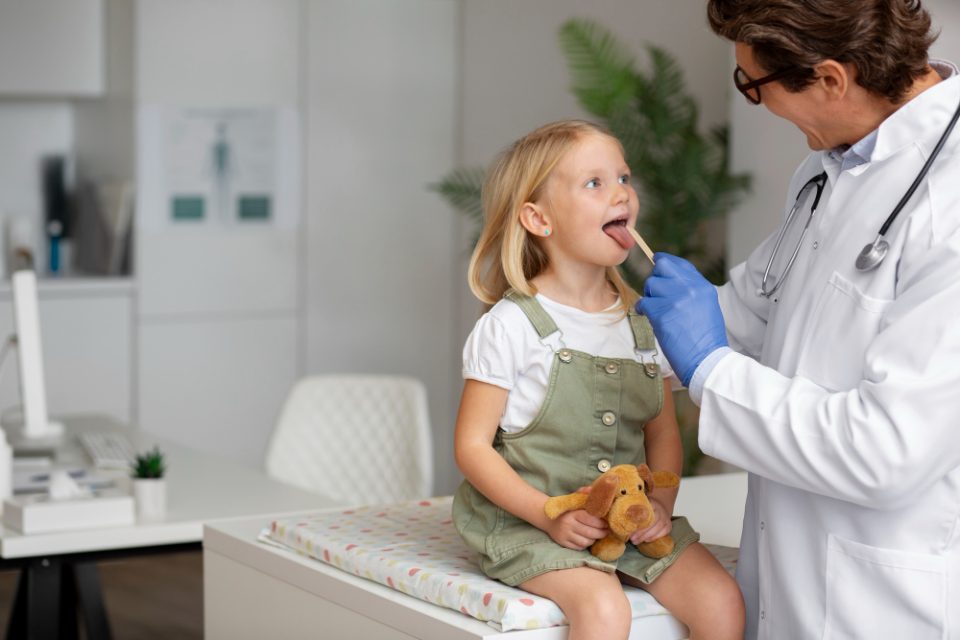As a parent, it’s natural to worry about your child’s health. Unfortunately, children can get sick just like adults, and there are many common pediatric diseases that parents should be aware of. In this article, we’ll discuss some of the most common pediatric diseases, their symptoms, and how they can be treated.
Asthma
Asthma is a chronic respiratory disease that affects millions of children worldwide. It causes inflammation and narrowing of the airways, leading to difficulty breathing, chest tightness, and wheezing. Common triggers for asthma include allergens, exercise, and respiratory infections.
Treatment for asthma usually involves the use of inhalers, which deliver medication directly to the lungs. In severe cases, oral medications may be prescribed. It’s also important for parents and caregivers to identify and avoid triggers that can worsen symptoms.
Ear Infections
Ear infections are another common pediatric disease, especially in infants and young children. They occur when bacteria or viruses infect the middle ear, causing pain, fever, and difficulty hearing. Children who attend daycare or have a history of ear infections are at a higher risk.
Treatment for ear infections often involves antibiotics to clear the infection. Pain relievers such as acetaminophen or ibuprofen can also be given to reduce discomfort. In some cases, surgery may be necessary to drain fluid from the ear.
Gastroenteritis
Gastroenteritis, also known as “stomach flu,” is a common illness in children, especially during the winter months. It’s caused by viruses or bacteria that infect the digestive system, leading to symptoms such as vomiting, diarrhea, and stomach cramps.
Treatment for gastroenteritis involves keeping the child hydrated and replacing lost fluids and electrolytes. Over-the-counter medications such as anti-diarrheals or anti-nausea medications may also be used. In severe cases, hospitalization may be necessary.
Chickenpox
Chickenpox is a highly contagious viral infection that is common in children under the age of 10. It causes a rash of itchy, fluid-filled blisters, as well as fever and fatigue. Chickenpox can be dangerous for infants, pregnant women, and people with weakened immune systems.
Treatment for chickenpox involves managing symptoms and preventing the spread of the virus. Over-the-counter medications such as acetaminophen or ibuprofen can be used to reduce fever and relieve discomfort. Antiviral medications may be prescribed in severe cases.
Hand, Foot, and Mouth Disease
Hand, foot, and mouth disease is a viral infection that is common in young children. It causes a rash of small, painful blisters on the hands, feet, and mouth, as well as fever and sore throat. The virus is highly contagious and can spread through contact with infected bodily fluids.

Treatment for hand, foot, and mouth disease involves managing symptoms and preventing the spread of the virus. Over-the-counter medications such as acetaminophen or ibuprofen can be used to reduce fever and relieve discomfort. It’s also important to practice good hygiene, such as washing hands frequently and avoiding close contact with others.
Croup
Croup is a viral infection that affects the voice box and windpipe, causing a cough that sounds like a barking seal. It’s common in children under the age of 5 and can be triggered by respiratory infections, allergies, or exposure to irritants such as cigarette smoke.
Treatment for croup involves managing symptoms and preventing complications such as difficulty breathing. Over-the-counter medications such as acetaminophen or ibuprofen can be used to reduce fever and relieve discomfort. In severe cases, hospitalization may be necessary.
Conclusion
In conclusion, there are many common pediatric diseases that parents should be aware of. It’s important to recognize the symptoms and seek medical attention if necessary. By following preventive measures such as good hygiene and avoiding triggers, parents can help protect their children from these illnesses.

